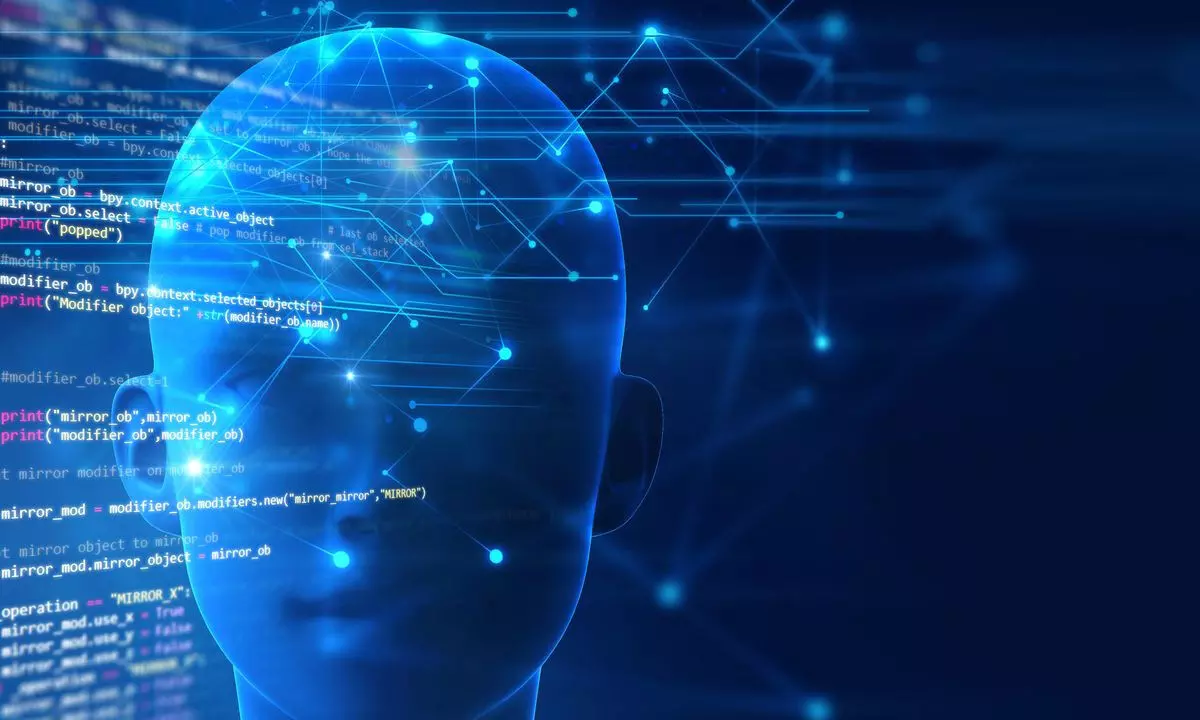Live
- Home Minister's doctored video: Telangana CM Reddy summoned by Delhi Police, say sources
- Sonakshi thanks filmmakers who've taken 'the risk' to cast her differently
- Rinku has to be a certainty in the 15 for T20 WC, says K Srikkanth
- JKUM to support Apni Party candidate in Srinagar LS seat
- 'Dramatic improvement' in ties with Bangladesh, 'game-changing' connectivity through northeast: EAM Jaishankar
- Lalu Prasad's daughter Rohini Acharya files nomination from Saran in Bihar
- ‘Baak (Aranmanai 4)’ Trailer: Get Spooked and Laugh Out Loud
- OpenAI, UK’s Financial Times ink content licensing deal
- PM Modi meets fruit seller Mohini Gowda in Karnataka, praises her for ‘good work’
- Thiruvananthapuram Mayor denies misbehaving with KSRTC bus driver
Just In
Understanding the impact of machine learning


In the rapidly evolving world of technology, machine learning (ML) emerges as a transformative force, promising to reshape our interactions with the digital realm in ways that are more intuitive, personalized, and efficient.
In the rapidly evolving world of technology, machine learning (ML) emerges as a transformative force, promising to reshape our interactions with the digital realm in ways that are more intuitive, personalized, and efficient. This revolutionary journey of ML transcends mere technological evolution, weaving its influence through the fabric of society, addressing some of the most pressing global challenges, and charting a path towards a future where technology and humanity exist in symbiotic harmony.
At the heart of machine learning’s transformative power is its unparalleled ability to digest and learn from vast datasets, enabling significant advancements across diverse fields. In healthcare, the potential of ML to revolutionize care is becoming increasingly apparent. Predictive models for early disease detection are shifting the paradigms of healthcare from reactive treatments to proactive and preventative care. These models, adept at identifying disease patterns well before conventional symptoms emerge, herald a new era in medical science where early intervention could significantly reduce mortality rates.
Simultaneously, the environmental sector is witnessing a renaissance through the application of ML. As the planet grapples with the escalating crisis of climate change, machine learning offers a beacon of hope. By accurately predicting and analyzing climate patterns, ML tools can empower communities to prepare for and mitigate the effects of extreme weather events, playing a crucial role in the global response to environmental conservation.
The transformative impact of ML extends into the realm of education, where it is democratizing access to personalized learning. By tailoring educational content to meet the individual needs of learners, ML-powered adaptive learning platforms can bridge educational disparities, offering students worldwide the opportunity to engage with a curriculum that caters to their unique learning pace and style. This shift towards a more equitable educational landscape is a testament to ML’s potential to foster inclusivity and accessibility in learning.
Moreover, the economic implications of machine learning are reshaping the very foundation of the global job market. As automation becomes increasingly prevalent, the narrative around job displacement is being counterbalanced by the emergence of new employment opportunities within the digital economy. This evolution underscores the need for a recalibration of skills and education, highlighting the importance of preparing the workforce for a future where technological fluency will be paramount.
Navigating through these advancements, the ethical considerations surrounding machine learning take center stage. The quest for transparent, fair, and accountable AI systems underscores the imperative for ethical frameworks that guide the development and deployment of ML technologies. It is a call to ensure that the march of machine learning aligns with human values and societal norms, fostering a future where technological advancements are not only innovative but also socially responsible.
The journey of machine learning is emblematic of the broader narrative of human creativity and innovation in the face of global challenges. As ML continues to permeate various aspects of our lives, it invites us to envision a world where technology not only enhances human existence but also serves as a catalyst for progress, inclusivity, and sustainability. This vision of the future, while optimistic, is tempered with a cautious acknowledgment of the hurdles that lie ahead. It is a future that demands our collective effort to realize the full potential of machine learning, ensuring that as we move forward, we do so in a manner that benefits all of humanity.
(The author is Data Scientist, BCG X, New York, United States)

© 2024 Hyderabad Media House Limited/The Hans India. All rights reserved. Powered by hocalwire.com






